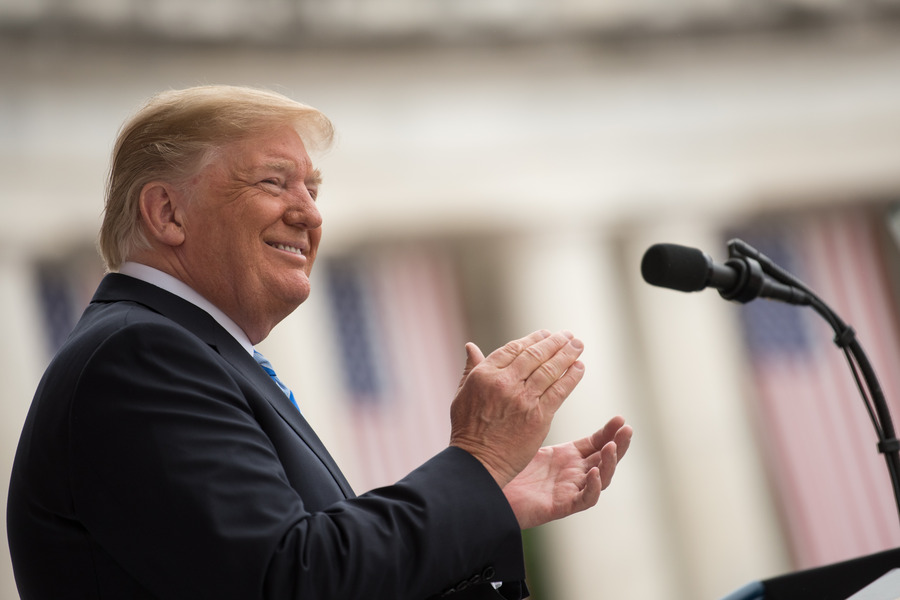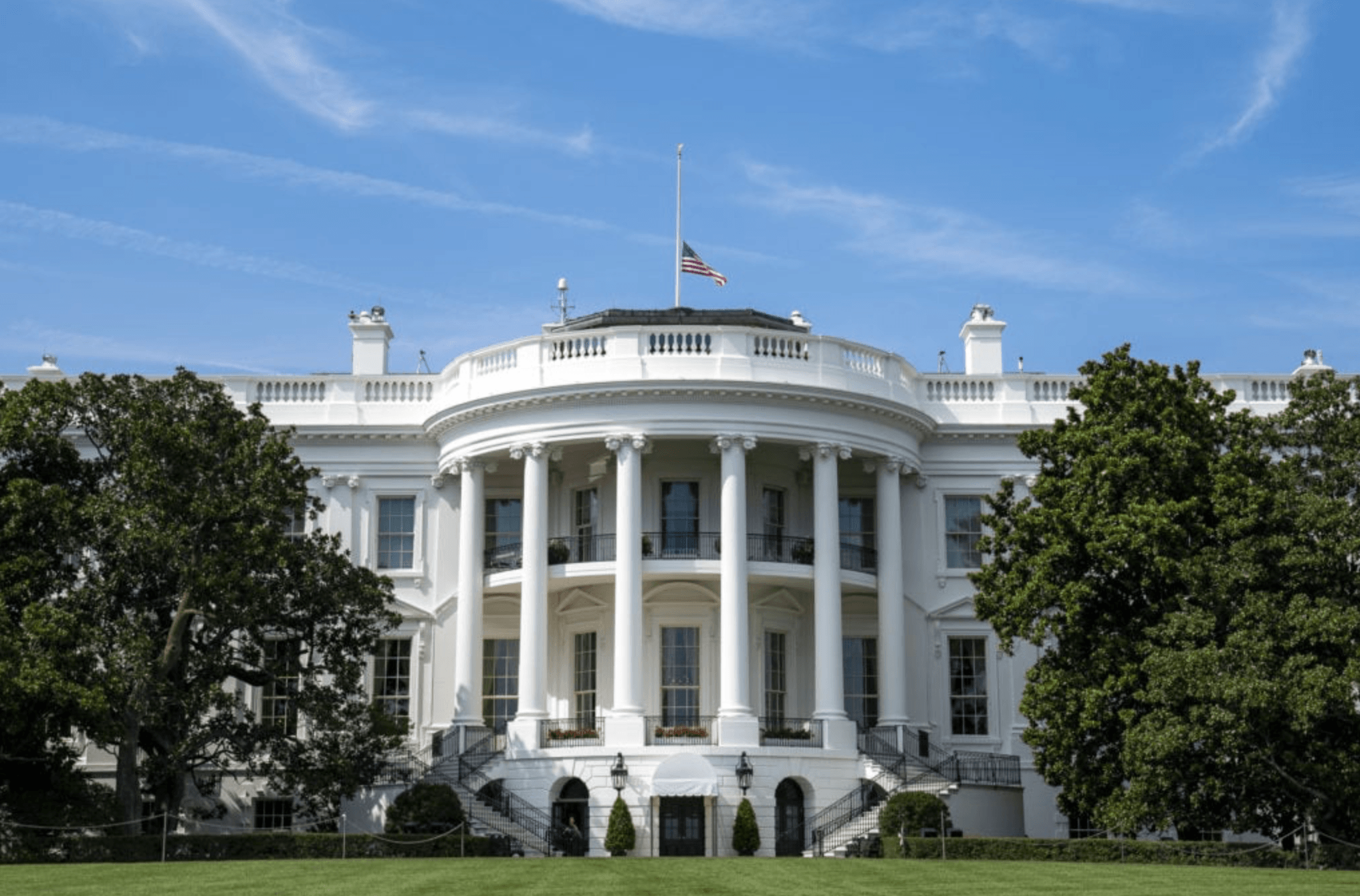The Constitution of Kakistocracy

Published by The Lawfare Institute
in Cooperation With

The term "kakistocracy" (rule by the worst) emerged from obscurity during the first Trump administration. The word, which was previously used to describe troubled foreign governments, gained mainstream usage as critics pointed to controversial appointments such as Tom Price at the Department of Health and Human Services and Scott Pruitt at the Environmental Protection Agency—officials whose qualifications and conduct drew widespread criticism.
With President-elect Donald Trump's imminent return to power, "kakistocracy" is back in public conversation. As the Economist noted by making it “word of the year,” Google searches for the term spiked in November: first after Trump's victory, then after he nominated controversial officials for cabinet positions, including Matt Gaetz for attorney general and Robert F. Kennedy Jr. for secretary of health and human services, and again when Gaetz withdrew his nomination amid criticism. And Trump's recent nomination of Kash Patel to lead the FBI has only intensified concerns about an impending kakistocracy.
More than just a problem of policy or politics, kakistocracy undermines a core constitutional principle: Functioning democracies need qualified individuals to hold public trust. Trump’s nominees threaten key constitutional norms in unprecedented ways: through their flaws, their number, and Trump’s willingness to skirt the procedural safeguards that ensure the Senate’s role in the appointments process. And like with so many of Trump’s norm-busting actions in his first term, constraints will mostly have to come from the political process rather than the legal one.
Kakistocracy as a Constitutional Problem
The Constitution’s framers were obsessed with the quality of American public officials. Thomas Jefferson extolled "a natural aristocracy among men[,] the grounds of [which] are virtue [and] talents. … [T]he natural aristocracy I consider as the most precious gift of nature, for the instruction, the trusts, and government of society." He argued, "[M]ay we not even say that that form of government is the best which provides the most effectually for a pure selection of these natural aristo[crats] into the offices of government?" Similarly, in the Federalist Papers, Alexander Hamilton recognized that personnel is policy, predicting that "judicious choice of men for filling the offices of the Union" would determine the "character of its administration," while John Jay predicted that “when once an efficient national government is established, the best men in the country will not only consent to serve, but also will generally be appointed to manage it.”
Unsurprisingly, the Constitution carefully addresses the appointment of government officials. First, it makes the president primarily responsible for appointments. This decision—to have a single person, rather than a collective body, nominate officials—both strengthens the executive and, as Hamilton explained, increases the quality of the appointments, since having a single individual in charge increases their political accountability in case of bad appointees. In contrast, with a committee of appointments, "while an unbounded field for cabal and intrigue lies open, all idea of responsibility is lost."
Second, the Constitution requires Senate consent to the appointment of high-level officers, subject to the limited exception of temporary appointments when the Senate is in recess. Hamilton argued that this limitation on the president's appointment power would be an "excellent check upon a spirit of favoritism in the President, and would tend greatly to prevent the appointment of unfit characters from State prejudice, from family connection, from personal attachment, or from a view to popularity."
Beyond the constitutional procedures of presidential nomination and Senate confirmation, the appointments process functions, as do so many parts of the Constitution, less as a matter of law than of norms. The expectation is that the president will nominate competent officials to run the executive branch and the Senate will exercise its confirmation power responsibly and block bad presidential nominees.
Trump's Nominations Break Long-Standing Constitutional Norms
Trump's nominations represent an unprecedented triple assault on constitutional appointment norms: First, many are unqualified or hostile to their agencies' missions. Second, rather than making a few controversial picks, Trump has flooded the zone, nominating an entire slate of problematic candidates that burdens the Senate's capacity for proper vetting. And third, Trump has signaled willingness to circumvent the confirmation process through legally dubious tactics such as forced Senate adjournment. Together, these moves threaten to transform the appointments process from a constitutional safeguard into a vehicle for installing loyalists regardless of competence.
To be sure, not all of Trump's nominees fit the kakistocratic pattern. Several—like Sen. Marco Rubio (R-Fla.), whom Trump nominated for secretary of state and who has served on the Senate Intelligence and Foreign Relations committees, and North Dakota Gov. Doug Burgum, nominated for secretary of the interior—would be plausible in any mainstream Republican administration. Others, such as Todd Blanche, Trump's nominee for deputy attorney general, and D. John Sauer, his nominee for solicitor general, have raised eyebrows for being part of his criminal defense team, but they are able and experienced advocates with extensive experience as government lawyers.
But these picks have been overshadowed by controversial and unqualified nominees, many nominated for sensitive law enforcement and national security positions. Consider just the highest-profile picks:
- Pete Hegseth (nominated for secretary of defense) has no experience managing large organizations or high-level defense matters, having never held a position remotely comparable to overseeing the Pentagon's $850 billion budget and 3 million personnel. He has opposed women in combat roles, described letting openly gay people to serve in the military as part of a “Marxist” agenda, and supported pardons for accused war criminals. He faces a serious sexual assault allegation and has had problems with alcohol, including reportedly shouting "Kill all Muslims!" while drunk.
- Tulsi Gabbard (nominated for director of national intelligence) has such a long history of repeating Russian propaganda, including claims about U.S.-funded biolabs in Ukraine, that Russian TV calls her "our girlfriend." She has a long-standing sympathy for the recently deposed Syrian dictator Bashar al-Assad. If allied intelligence agencies don't trust her, they might curtail intelligence sharing with the U.S.
- Robert F. Kennedy Jr. (nominated for secretary of health and human services) lacks medical or public health qualifications and has been one of the nation's leading sources of vaccine misinformation (among other conspiracy theories) through his organization Children's Health Defense. His appointment could endanger millions of Americans by undermining established public health policies and scientific expertise. (Similar concerns apply to Trump's nomination of noted medical huckster Mehmet Oz to run the Centers for Medicare & Medicaid Services.)
- Matt Gaetz (nominated for attorney general—withdrawn) faced serious allegations of wrongdoing during his nomination, including accusations of paying a minor for sex and a House Ethics Committee investigation into his alleged sexual misconduct, drug use, and campaign finance violations. He lacks significant legal experience and promoted conspiracy theories about the 2020 election.
- Kash Patel (nominated for FBI director) lacks experience managing large-scale law enforcement operations (though he has written several children’s books) and is known for promoting election conspiracy theories. He has called for transforming FBI headquarters into a "museum of the deep state" and threatened to pursue media figures and political opponents.
- Charles Kushner (nominated for ambassador to France), the father of Trump’s son-in-law Jared, served 14 months in federal prison for tax evasion, witness tampering, and illegal campaign contributions before being pardoned by Trump. His criminal history includes hiring a prostitute to seduce his brother-in-law and sending a video of the encounter to his sister.
There are important objections to my portrayal of Trump's appointees as a constitution-challenging rogues' gallery. First, the tension between loyalty and competence in presidential appointments isn't unique to Trump. Previous presidents also made controversial choices: John F. Kennedy named his brother Robert as attorney general despite limited legal experience, and George W. Bush's unqualified Federal Emergency Management Agency Director Michael Brown mishandled Hurricane Katrina. However, these examples operated within recognizable bounds, and the appointees at least attempted to fulfill their roles. Trump's are unprecedented in modern times, featuring candidates who not only lack basic qualifications (and sometimes even clean criminal records) but actively oppose the missions of their assigned agencies.
Another, more fundamental, objection is that "competence" is contested. Many policy disputes turn on questions of value as much as expertise, and perhaps Trump's nominees reflect different values that establishment types (like myself) find threatening. On this view, objections to his appointments (or to him more generally) aren't neutral appeals to competence but instead reflect snooty, out-of-touch biases that voters rejected in electing Trump, who was explicit about his policy priorities. I can’t rule out that one day Trump will be viewed like President Franklin Delano Roosevelt: another norm-challenging president whose appointments were denounced by establishment thinkers as contrary to the constitutional order, but judged differently by history. But I highly doubt the story will play out this way.
Compounding the problems with Trump’s appointments is that he isn’t installing one or two bad apples but rather a whole slew of them. The Senate’s advice and consent process relies on deliberation, investigation, and debate—resources that are finite and constrained by procedural rules. The volume of controversial nominees will force senators to prioritize their battles, allowing some to advance simply due to limited time and attention. Each vetting requires extensive background checks (which, in yet another departure from norms, Trump signaled the FBI will not perform for at least some of his nominees), hearings, and debates. A deluge of controversial appointments could overwhelm these mechanisms, turning the confirmation process into a bottlenecked triage system. The Senate could increase its vetting resources and modify its procedures to handle the flood, but this would come at the expense of its other responsibilities, like legislation and oversight.
Even with added capacity, the reality of party loyalty remains. In a Senate controlled by the president's party, the majority faces immense pressure to confirm nominees to maintain unity and avoid alienating the president's base. This dynamic reduces the Senate's role from a check on executive power to an enabler of it—an example of what scholars call "separation of parties, not powers." Senators may privately doubt the fitness of nominees but still approve them to avoid the political cost of resistance. In this environment, institutional responsibility is sacrificed to party loyalty, diminishing the Senate's ability to ensure competent governance.
The volume of questionable nominees can also lead the Senate itself to undermine constitutional norms. When confronted with such a problematic slate, the Senate may feel compelled to vote down an unprecedented number of appointments. While this might be necessary to preserve the integrity of the executive branch, it conflicts with the principle that the president should receive deference in staffing his administration. This challenge is acute given that the confirmation process is already dysfunctional, with qualified nominees from both parties languishing as the Senate refuses to vote on them—undermining presidential prerogatives and fairness to the nominees. By rejecting large numbers of nominees, the Senate deepens partisan conflict and risks creating a new norm of resistance that could erode the flexibility and functionality of future administrations, regardless of party.
Fundamentally, Trump’s second term marks a return to a premodern approach to executive administration, reminiscent of the “spoils system” earlier in American history, before the framers’ focus on good governance was instantiated in law and practice. Early presidents such as Andrew Jackson appointed loyalists and political allies regardless of competence, resulting in inefficiency and corruption. Another notable example is Warren G. Harding's "Ohio Gang," unqualified cronies and corrupt associates who exploited their positions for personal gain.
These historical parallels highlight a departure from the merit-based norms of modern American governance. While the 20th and early 21st centuries saw a trend toward professionalizing the executive branch, Trump's nominations mark a reversion to governance as a means of rewarding loyalty and advancing personal or ideological agendas. This shift risks immediate harm from unqualified officials in critical roles and normalizes such appointments, setting a dangerous precedent for future administrations to prioritize partisan loyalty over public service.
Trump's assault on appointment norms extends beyond the quality and quantity of his nominees to the confirmation process itself. It was unprecedented for Trump to demand that candidates commit to recess appointments and give up the Senate's institutional power. It was also bizarre, given that the chamber will be under Republican control and would thus likely confirm even marginally acceptable nominees.
Even more extraordinary is the reported plan—first surfaced by conservative lawyer Ed Whelan and not disavowed by Trump—to invoke a never-before-used constitutional provision to forcibly adjourn the Senate. If successful, this would allow Trump to recess appoint his entire cabinet. Such a maneuver would assault separation-of-powers norms and could precipitate a constitutional crisis if the Senate resisted. And if it agreed to an extended recess to allow Trump’s appointments, that would itself represent a troubling abdication of its constitutional responsibilities.
The only mitigating factor in this destructive scheme is that it would not only challenge norms but also face legal scrutiny. The Supreme Court has previously pushed back against presidential abuses of the recess appointments power, as shown by its unanimous rebuke of President Barack Obama's attempt to make recess appointments when the Senate held pro forma sessions that signaled its opposition to confirming nominees. This precedent suggests a check on Trump's actions, but it is unclear whether the current Court would take such a bold stand against him, raising unsettling questions about the resilience of legal and institutional safeguards against executive overreach.
What to Do?
Nevertheless, the legal system offers only limited recourse against Trump's appointments strategy. Courts may intervene to block his most extreme procedural maneuvers—like forcibly adjourning Congress and other exploitations of the recess power—but the core issue of whom the president chooses to nominate falls squarely within what courts consider a nonjusticiable "political question." The president's appointment power and the Senate's confirmation role are classic examples of a "textually demonstrable constitutional commitment" to the political branches that courts are loath to second-guess.
But judicial restraint doesn't mean ignoring constitutional principles. The Constitution's meaning extends beyond Supreme Court decisions—it lives in how Congress, the president, and ultimately the public understand and uphold constitutional values. When courts step back, other constitutional actors must step forward. This requires addressing Trump's degradation of the appointments process and refusing to treat as normal what is fundamentally aberrant.
Meaningful constraints on appointment abuse must emerge through political channels. The immediate hope lies with Republican senators (and House members in the case of a forced adjournment) who might prioritize institutional integrity and national interest over partisan loyalty (though recent signs are not encouraging). Failing that, Democratic control of the House after 2026—a likely prospect given the Republicans’ narrow majority and the historical pattern of midterm losses for the incumbent president's party—could provide some leverage for accountability.
While impeachment remains available, its practical value is limited. Even if egregiously inappropriate appointments could theoretically constitute "high crimes and misdemeanors," the Senate's failure to convict Trump in two previous cases suggests this path is effectively closed. Congress’s oversight powers and control over appropriations might be better deployed investigating these agencies' performance and using leverage over Trump's policy priorities to demand more qualified leadership.
In the long run, only the democratic process can stop kakistocracy. Americans must decide whether they want competent leadership or its opposite. The harsh reality is that they chose Trump twice—narrowly in 2016 and more decisively in 2024—despite his unfitness for office.
Perhaps only a catastrophic failure of governance—what journalist Michael Lewis termed "the fifth risk"—will convince Americans of the dangers of entrusting power to the manifestly unqualified. Hopefully, when such a reckoning comes, it doesn't irreparably damage America in the process.





